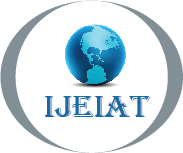| S.No | Title | Author | Description | Download | |
|---|---|---|---|---|---|
| 1 | An In-Depth Exploration Of Natural Language Processing: Evolution, Applications, And Future Directions | 1.KALIKI PRANUSHA 2.Dr. P VAMSI KRISHNA RAJA |
Natural language processing (NLP) has recently garnered significant interest for the computational representation and analysis of human language. Its applications span multiple domains such as machine translation, email spam detection, information extraction, summarization, healthcare, and question answering. This paper first delineates four phases by examining various levels of NLP and components of Natural Language Generation, followed by a review of the history and progression of NLP. Subsequently, we delve into the current state of the art by presenting diverse NLP applications, contemporary trends, and challenges. Finally, we discuss some available datasets, models, and evaluation metrics in NLP. |
||
| 2 | External Information On Large Linguistic Models Utilizing Retrieval Enhanced Generation (RAG) | 1.KALIKI PRANUSHA 2.Dr. P VAMSI KRISHNA RAJA |
The swift expansion of the internet has resulted in an unparalleled volume of information, and recent progress in computational capability, notably with the utilization of Graphics Processing Units (GPUs), has permitted the instruction of potent Large Linguistic Models (LLMs) proficient in producing human-like text. These LLMs, such as GPT-4, are instructed on extensive public information and can deliver solutions to generate user inquiries. Nonetheless, as they are not instructed on confidential information possessed by firms, LLMs are incapable of exploiting this information to amplify their competencies and precision in generating replies to user inquiries. Prompt engineering plays an essential role in crafting sturdy and efficacious prompting methodologies that interface with LLMs and other utilities. However, LLMs can occasionally comprise obsolete knowledge, hallucination, and non-transparent information, which can restrict their effectiveness. This work tackles the employment of Retrieval Enhanced Generation (RAG) as a remedy to amplify the knowledge of LLMs so that they can deliver precise replies. RAG architecture permits the incorporation of confidential information as context along with user inquiry in the prompt for LLMs. The principal focus of this investigation is to examine the amalgamation of external information into RAG by the Creation of embeddings for confidential information and storing in vector database. Retrieval of pertinent documents for user inquiries using vector similarity search. Construction of an effective prompt by appending pertinent information as context along with user inquiries and guidelines for LLMs to adhere to. |
IJEIAT Issue

